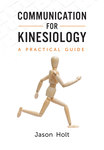We don’t actively support Internet Explorer
It appears that you are using Internet Explorer, which has been discontinued by Microsoft. Support has ended for versions older than 11, and as a result you may face security issues and other problems when using it.
We recommend upgrading to a newer browser such as Firefox, Google Chrome, or Edge for a much better experience across the web.
While this site may work with Explorer, we are not testing and verifying it, so you may run into some trouble or strange looking things.
Debating Health Care Ethics, Second Edition
Canadian Contexts
By Patrick Findler, Doran Smolkin, Warren Bourgeois
Overview
In this updated second edition, Debating Health Care Ethics explores contemporary moral challenges in health care, providing students with the essential tools to understand and critically evaluate the leading arguments in the field and to develop their own arguments on important moral problems in health care. Written in a clear and concise way, the textbook’s first three chapters explore the nature of arguments and ethical theories, while the remaining chapters introduce students to moral problems in health care through case studies and dramas that feature complex scenarios involving patients, family members, and health care providers. Each case study and drama is followed by a lively debate where the authors defend their unique approaches to the dilemma. This new edition now includes more gender inclusive dramas, an expanded discussion of feminist ethics, a case study on euthanasia that highlights changes to Canadian law, and an update on fetal consciousness that informs the debate on abortion. Emphasizing critical issues in health care from a Canadian perspective, this essential textbook will benefit students in philosophy, nursing, and health studies.
Table of Contents
Chapter 1 Arguments and Methodology Introduction Arguments What Is an Argument? Evaluating Arguments Philosophical Methodology—Counterexamples and Thought Experiments Common Fallacies Circularity (a.k.a. Begging the Question) False Dilemma Equivocation Appeal to Emotion Straw Man Ad Hominem Conclusion Review Questions Notes
Chapter 2 Philosophical Ethics: An Introduction Introduction Three Types of Ethical Inquiry Skeptical Concerns: Ethical Relativism Normative Ethical Theory Classical Act Utilitarianism Objections to Utilitarianism Utilitarian Responses Rule Utilitarianism Non-Consequentialism and Deontology Kant’s Ethics The Idea of Moral Worth The Categorical Imperative The Universal Law Formulation of the Categorical Imperative The Humanity Version of the Categorical Imperative Objections to the Universal Law and Humanity Tests Pluralistic Deontology Difficulties with Ross’s Theory Social Contract Theory Hobbes’s Social Contract Theory Objections to Hobbes’s Social Contract Theory Rawls’s Social Contract Theory: Justice as Fairness Difficulties with Rawls’s Social Contract Theory Aristotle’s Virtue Theory Objections to Virtue Theory Feminist Ethics The Ethics of Care Difficulties with the Ethics of Care Status-Oriented Feminist Approaches Conclusion Review Questions Notes
Chapter 3 Our Philosophical Approaches Introduction Doran’s Pluralistic Approach to Ethics Leading Ethical Theories and Their Problems Moral Pluralism Patrick’s Virtue-Based Approach to Ethics Metaethics Normative Ethics Some Objections and Responses Warren’s Approach to Ethics: Practical Social Contract Theory The Main Contractarian Ideas for Warren’s Purposes The Committee Metaphor The Video Game Metaphor Warren’s Use of Social Contract Theory Cultural Relativism Ethics Regarding Non-humans Social Contract Theory beyond Ethics Warning Conclusion Review Questions Notes
Chapter 4 Autonomy and the Right to Refuse Treatment Introduction Drama Debate Identifying Relevant Facts Moral Issues Raised by the Case Stating Our Positions An Argument for the Right to Ignore Experts Clarifying Premise (3) Assuming Mr. Edwards Was Competent, Did His Health Care Team Err in Releasing Him from the Hospital When They Did? Objections to Premise (5) Was Mr. Edwards Competent? The Gangrenous Foot Example Incompetence to Refuse Medical Care: Skepticism without Reason Competence and Psychiatric Evaluation Did Mr. Edwards Give a Valid Refusal? Objections to Premise (7) Virtue May Overpower the Right to Refuse Doubt Justifies Delay Review Questions Notes
Chapter 5 Euthanasia Introduction Case Description Case Description: Tim Regan’s VAE What Is Euthanasia? Different Kinds of Euthanasia Deciding Which Issues to Debate The Morality of Voluntary Active Euthanasia The Autonomy and Best Interest Argument for VAE The Revised Autonomy and Best Interest Argument The Sanctity of Life Objection to the Morality of VAE Suicide and Hare’s Lorry Driver—More Counterexamples to the Sanctity of Life Principle An Argument That the Moral Reasons against Killing Do Not Apply to VAE An Argument That Euthanasia Is Wrong Because It Destroys What Belongs to God A Counterexample to the Revised Autonomy and Best Interest Argument The Morality of Non-Voluntary Active Euthanasia The Best Interest Argument for NAE Philippa Foot’s Objection to NAE The Never-Best-Interest Objection to NAE Summary Review Questions Notes
Chapter 6 Abortion Introduction Drama Debate Clarifying the Case and Identifying Relevant Facts Moral Issues Raised by the Case Stating Our Positions Leading Arguments against the Morality of Abortion Noonan’s Argument Marquis’s Argument for the Wrongfulness of Abortion The Argument that This Abortion Discriminates Against the Disabled Patrick’s Virtue-Based Argument for Why Abortion Would Be Permissible in this Case The Right to Life Weighed against Marissa and Don’s Virtues Doran’s Argument That Marissa and Don’s Decision to Abort Was Morally Permissible The Rationality Criterion for a Right to Life The Life Criterion The Sentience Criterion The Addition of Rationality to Sentience Objections to Doran’s Sentience-Based Criterion of a Right to Life Summary Review Questions Notes
Chapter 7 C-Section by Choice Introduction Drama Debate Clarifying the Case and Identifying Relevant Facts Moral Issues Raised by the Case Stating Our Positions Doran’s Argument for Why Wendy’s Decision Is Morally Permissible Do Potential Harms Make Wendy’s Autonomous Choice Wrong? Harms to the Baby Harms to the Mother Harms to Others besides the Baby and the Mother Summary Review Questions Notes
Chapter 8 Two-Tier Health Care Introduction Drama Debate Clarifying the Case and Identifying Relevant Facts Moral Issues Raised by the Case Stating Our Positions A Libertarian Argument The Wilt Chamberlain Example Is Redistributive Taxation Inherently Unjust? The Complicity Objection to the Second Premise The Compassion Objection to the Libertarian’s Second Premise An Egalitarian Argument The Self-Respect Argument Two-Tier Arguments Is Two-Tier MRI Permissible If It Does Not Harm the Public Health Care System? Is Two-Tier MRI Permissible If It Benefits the Public Health Care System? Warren’s Social Contract View on When Two-Tier MRI Is Justified Patrick’s Virtue-Based View on When Two-Tier MRI Is Justified Comments on Canada’s Current Public Health Care System From the Political to the Individual Closing Arguments Summary Review Questions Notes
Chapter 9 Microallocation of Scarce Resources Introduction Drama Debate Clarifying the Case and Identifying Relevant Facts Moral Issues Raised by the Case Stating Our Positions Microallocation Rules: Clinical Considerations Warren’s Argument for Fair Microallocation Rules: Worst First, First Come, and Hopeless Second Doran’s Objection to the Sympathy Metarule Patrick’s Objection to the Sympathy Metarule Objection to the Sufficiency of Hopeless Second Minimize YPLL (Minimize Years of Potential Life Lost) Substantial Benefit Fair Turn Microallocation Rules: Non-Clinical Considerations Moral Responsibility Innocents First Third-Party Interests Public Interest Medical Interests Collecting Our Thoughts Summary Review Questions Notes
Chapter 10 Alternative Medications and Professional Relationships Introduction Drama Debate Clarifying the Case and Identifying Relevant Facts Moral Issues Raised by the Case Stating Our Positions The Best Interest Principle Patrick’s Frog Toxin Counterexample to the Best Interest Principle The Ample Discretion Principle Doran’s Indeterminacy Objection to Warren’s Principle The Ample Discretion Principle Revised: Valid Consent of Competent Patients Only Ample Discretion, Patient Competence, and Valid Consent Ample Discretion and Patient Autonomy The Ample Discretion Principle Revised (Again): Harm Avoidance Against the Revised Ample Discretion Principle: The Division of Labour Objection The Psychic Surgery Counterexample More Counterexamples to the Ample Discretion Principle: Prayer and Other Unconventional Treatments Final Thoughts Summary Review Questions Notes
Glossary Index






